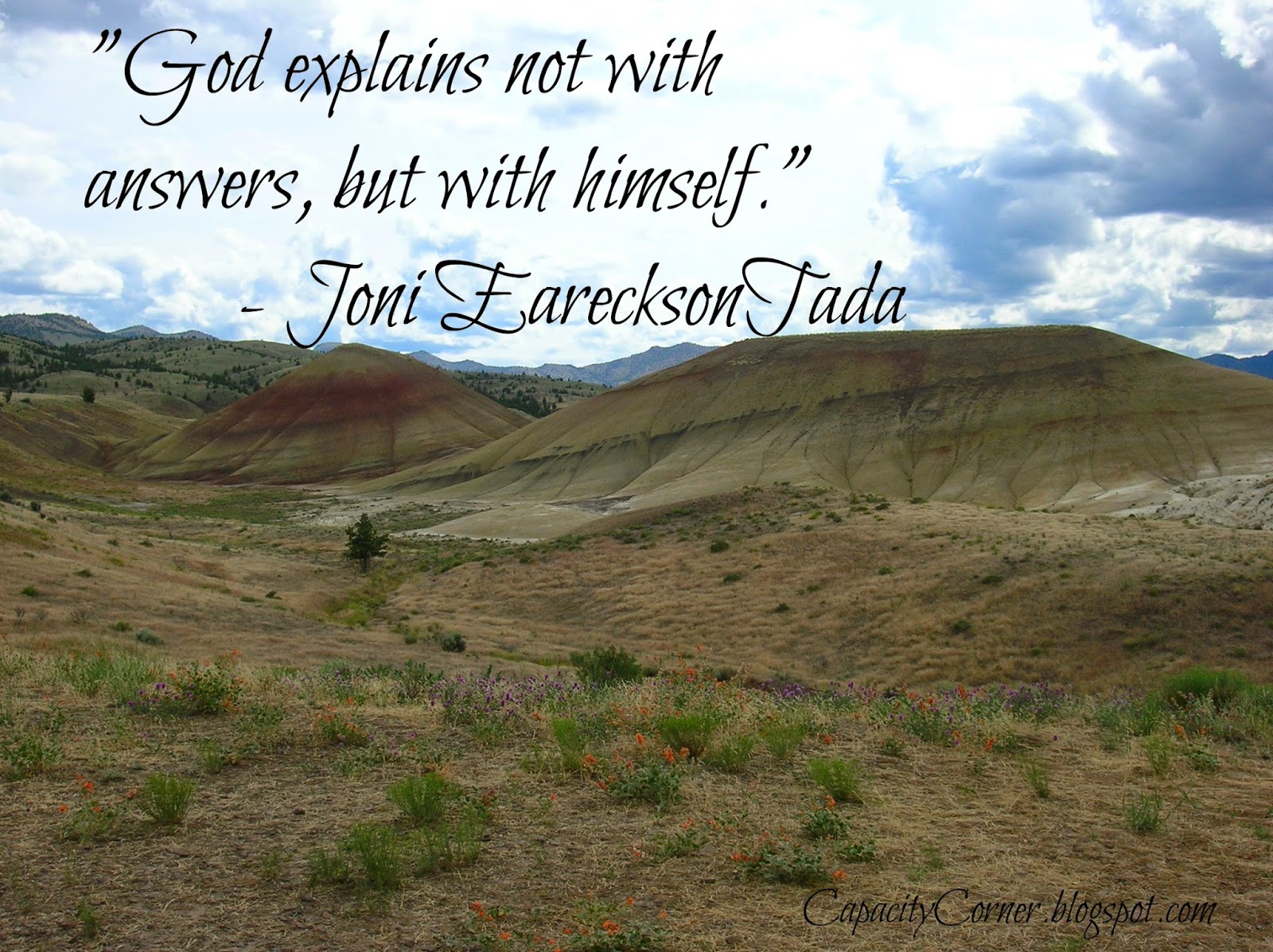God's Lifelong Explanation to the Question "Why?"
She lay there in the dark of a hospital room paralyzed by
an accident she didn’t ask for and groping for answers that wouldn’t come.
Suddenly, Joni Eareckson turned her eyes, and they fell on the welcome
sight of her friend, Jacque. Without a word, Jacque climbed into the hospital bed
next to her paralyzed friend and sang the words of a familiar hymn:
Man
of Sorrows what a name
For the
Son of God who came
Ruined
sinners to reclaim:
Hallelujah!
What a Savior!
Thirty years later, Joni sang this hymn to Jacque, while
her friend grieved the loss of her son who had committed suicide. As each groped
for answers, the only words that came for each other were the words of the
hymn, “Man of Sorrows! What a Name.”
“I watched the way she held the cross around her neck,” Joni wrote. “The cross where God explained not with answers but with himself.” (O Worship the King, p. 59)
The Cross—who He is
and the death He died— explains “Why?” without words.
“Why did He allow Himself to suffer when He could have refused?"
“Why did the Father allow it?"
“Why did He have to endure the pain?”
“Why did He allow Himself to suffer when He could have refused?"
“Why did the Father allow it?"
“Why did He have to endure the pain?”
To be our Savior
required a Cross.
It took suffering.
Life’s sufferings give
us a glimpse into the Person of Christ.
He experienced the “why’s” we ask and “committed Himself to Him who judges
righteously” (1 Peter 2:23).
Sometimes this hymn is called “Hallelulah! What a Savior!”
instead of “Man of Sorrows! What a Name.”
Until we see the scars in His hands one day, life’s scars will be
marks of remembrance to point us to a Savior who “sealed my pardon with His blood.”
His blood and suffering sealed our eternal inheritance.
A paralyzed friend, a grieving mother, any hurt too deep
for words can sing in the dark of a Savior who knew suffering and endured “for the joy that was set before him"
(Hebrews 12:2).
God explains “not with answers but with Himself.”
“To this day, Jacque is discovering all that means. Just like her paralyzed friend.” – Joni Eareckson Tada



Comments
Post a Comment